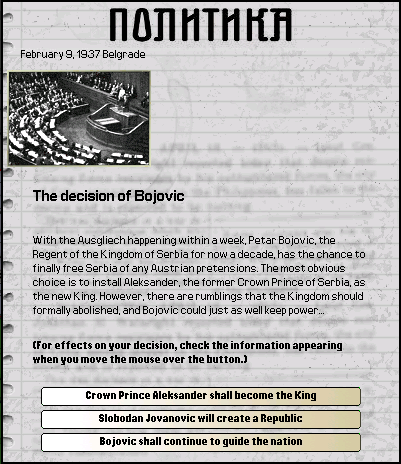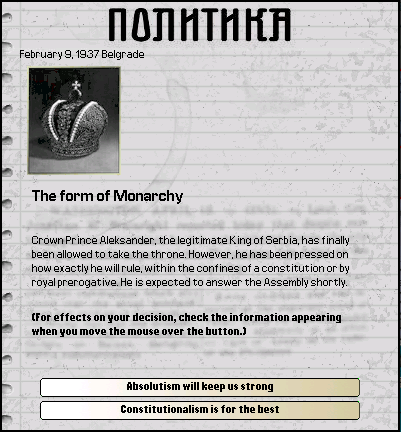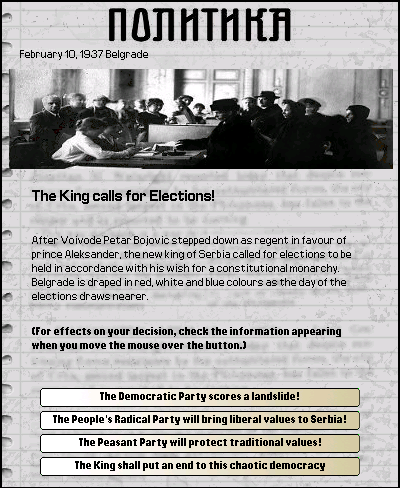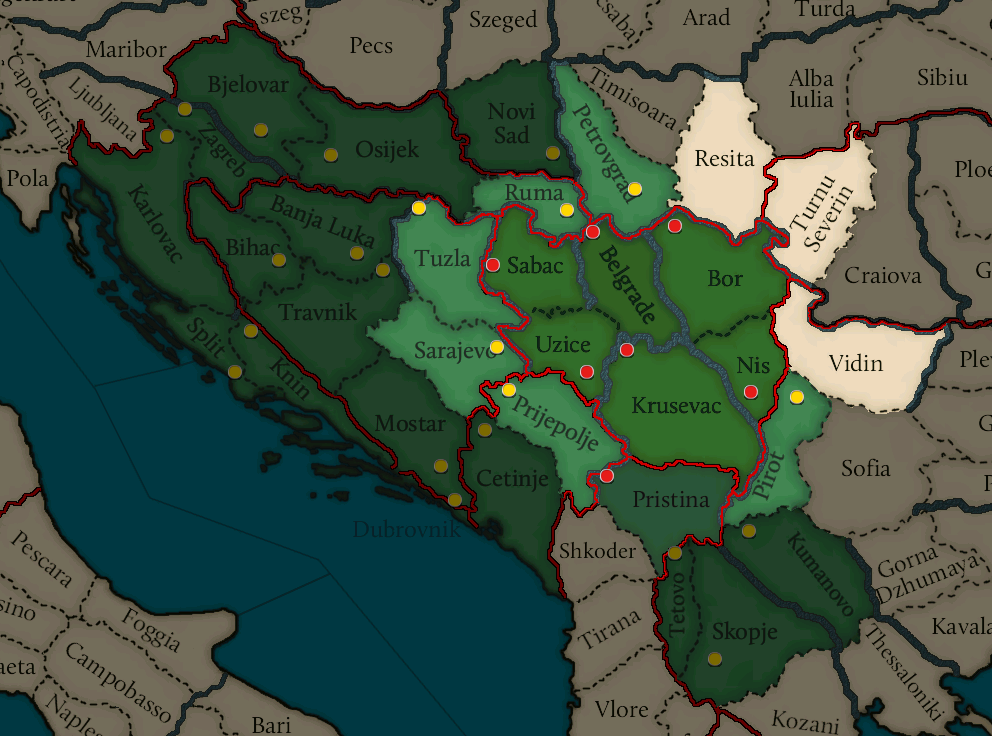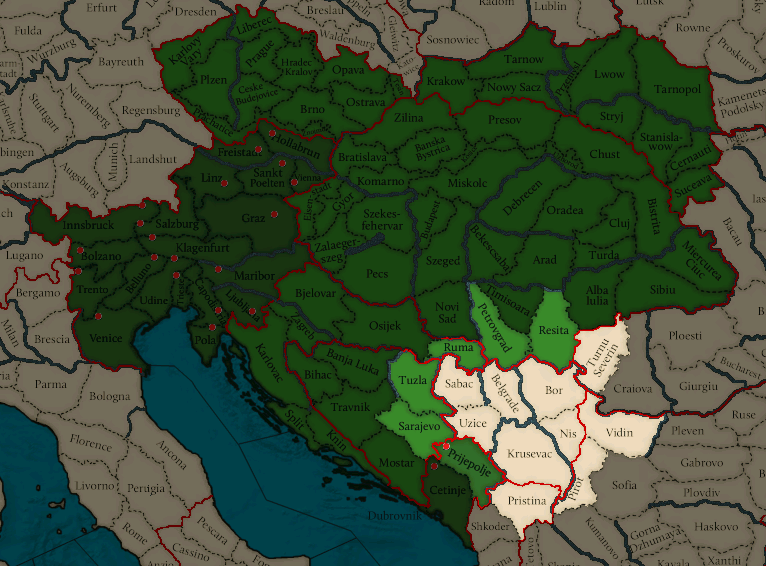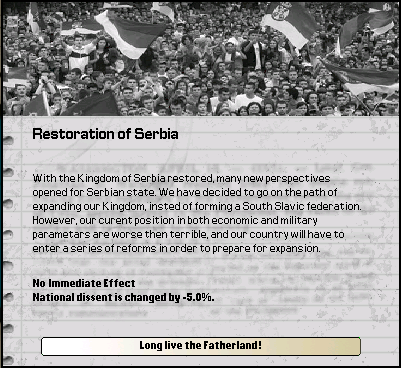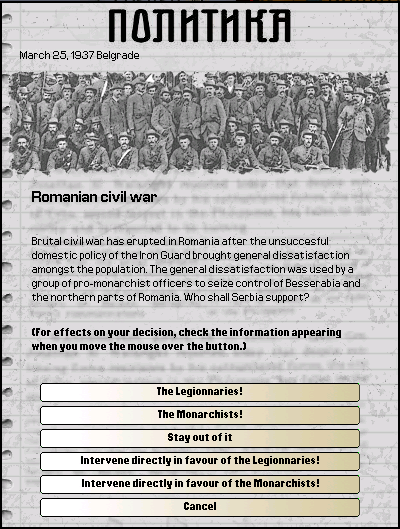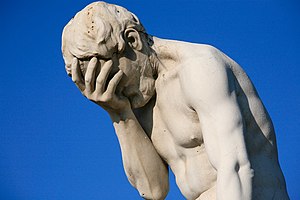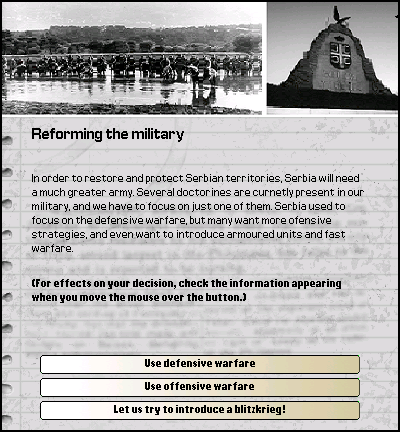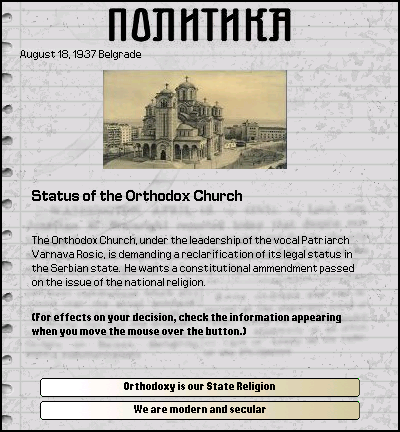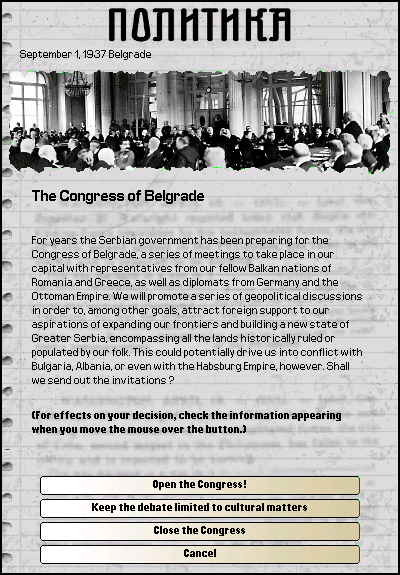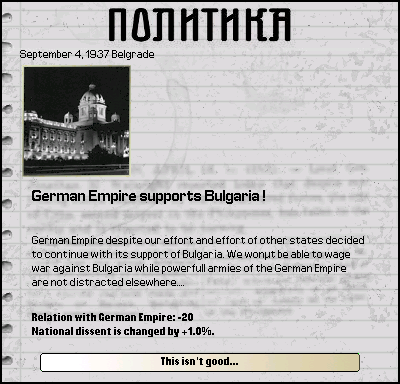The God of Justice
Welcome to my new (hopefully this time finished) AAR! I have taken the wheel of my Serbia during tough interwar period. Hopefully, it will be as much as fun for you as it will for me. Enjoy! Uzivajte!
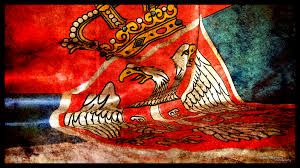
Serbia has been occupied by Austria in the post Weltrkreig period, and suffered great damage because of the occupation. It was violently exploited,and every progress impossible under firm conservative Austrian rule. However, after inter problems in the monarchy, Serbia succeeded in releasing itself from Austrian occupation and influence. General Petar Bojovic took the role of the leader in these hard times, and managed to keep Serbia of the Austrian sinking boat.
Now Serbia lies on the crossroads of history with her choices at hand - where will Serbian eagle look - east or west, progress or stagnation, prosperity or destruction...Whatever choice Serbia makes, one is sure, the same winds of war that surrounded Serbia two decades ago are again lurking, but this time, Serbia will stand firmly before the storm...
Welcome to my new (hopefully this time finished) AAR! I have taken the wheel of my Serbia during tough interwar period. Hopefully, it will be as much as fun for you as it will for me. Enjoy! Uzivajte!

Serbia has been occupied by Austria in the post Weltrkreig period, and suffered great damage because of the occupation. It was violently exploited,and every progress impossible under firm conservative Austrian rule. However, after inter problems in the monarchy, Serbia succeeded in releasing itself from Austrian occupation and influence. General Petar Bojovic took the role of the leader in these hard times, and managed to keep Serbia of the Austrian sinking boat.
Now Serbia lies on the crossroads of history with her choices at hand - where will Serbian eagle look - east or west, progress or stagnation, prosperity or destruction...Whatever choice Serbia makes, one is sure, the same winds of war that surrounded Serbia two decades ago are again lurking, but this time, Serbia will stand firmly before the storm...
Chapter II - The Ausgleich and Serbian restoration
Chapter III - Economic reforms and Congress of Belgrade
Chapter IV - Fourth Balkan War
Chapter V - Megali Idea - Rise of Constantinople
Chapter VI - The Rising Storm - Europe at war
Chapter VII - Blitzkrieg in the North
Chapter VIII - The Great Russian Bear
Chapter IX - Partitioning of Germany and fall of Iron Guard
Chapter X - The Formation of Empire
Chapter XI - The Glory Achieved
Chapter XII - Breaking the Mediterranean Fort
Chapter XIII - The new red world - Rise of CSA and CNT-FAI
Chapter XIV - Armageddon - World War III
Last edited:


